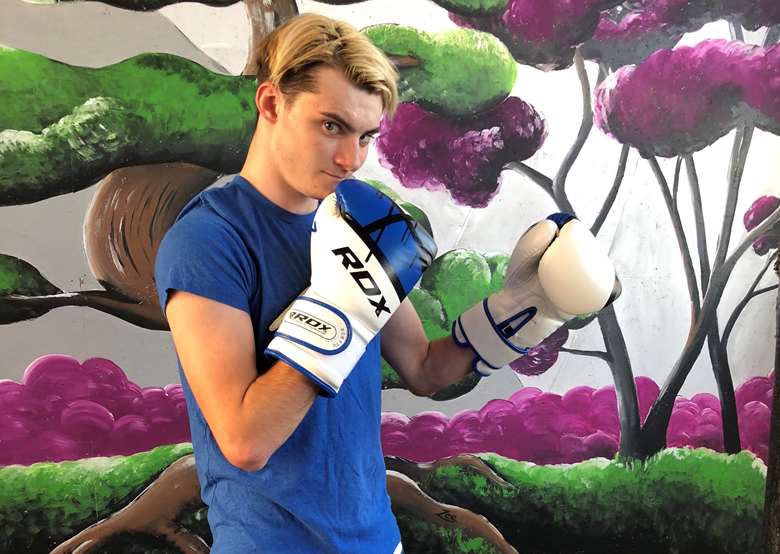How Shared Lives provides care leavers with life skills and supportive relationships
Sponsored
Annette Rawstrone
Monday, March 9, 2020
Care leavers without the safety net of a family are increasingly finding themselves in unregulated accommodation because of a lack of suitable homes.

Instead of having role models and help as they move into adulthood, they are being left to struggle with finances, anxiety, resulting mental health issues and sometimes homelessness.
An antidote to this familiar scenario is Shared Lives, a scheme that matches care leavers, aged from 16-years-old, with trained carers who welcome them into their homes. It is a way for young people to gain independence while also having support as they go through what can be a challenging transition (see case study, below).
The regulated Shared Lives schemes have been consistently rated by the Care Quality Commission among the highest quality and safest form of social care. There are schemes in most areas of England and Wales, with more than 96 per cent judged good or outstanding.
Sense of belonging
The match between young person and carer is crucial to the success of the schemes, with an emphasis on creating long-lasting relationships which can bring a sense of belonging and produce positive outcomes.
Typically, care leavers are introduced to more than one carer so that they can choose someone with shared interests, outlook and aspirations.
“The relationship makes a big difference because a lot of young people in care have not had that sense of security and felt safe, especially if they have experienced multiple foster relationships,” says Anna McEwen, executive director of support and development at Shared Lives Plus.
“Shared Lives is based on forming a relationship and trust as the young people are learning from an adult who can model behaviour in a supportive, safe environment. Developing important skills, such as cooking and managing bills, are difficult to learn on their own.
“Shared Lives aims for young people to learn the skills to empower them to become independent and move into adulthood.”
Holistic support
The self-employed carers are trained, regularly monitored and supported by local regulated Shared Lives schemes. "The willingness to open up their home, value the young person, treat them as an individual and value them holistically is what’s important,” says McEwen.
Shared Lives carers give support by:
- focusing on their strengths and helping them to realise their potential
- working towards agreed person-centred goals
- building knowledge, skills, resilience and confidence
- guiding, rather than automatically intervening
There is no set time period for each placement, with care leavers usually eligible to remain until they no longer require the support and are ready to move into their own home.
The placements are cost effective because they are based in people’s homes, and carers are self-employed, rather than paid by the hour. In Northamptonshire, Shared Lives supported 12 care leavers with a saving of £400,000 in one year compared to other schemes.
“We see young people who have skills and confidence and are excited about the future because they have formed supportive relationships,” says McEwen. “Shared Lives is so simple but it has a profound effect on people’s lives.”
Case study: Lee and Maz
Care leaver Lee and carer Maz have become family since they were matched for a Shared Lives placement in March 2018 when Lee was 17-years-old.
Living with Maz gives stability to Lee, who has experienced a complicated childhood including multiple foster placements. He was apprehensive about the scheme and pushed boundaries as he struggled to cope with the freedoms and responsibilities of adulthood.
However, Maz’s determination and support has helped him to develop self-worth and gain a better quality of life. “I was scared,” says Lee. “I was frightened of being rejected. But it’s been amazing.”
Maz, a care manager for social services and mother of two adult sons, treats Lee like one of her own children, even going on holidays together. Lee was not expected to gain any qualifications but with her encouragement he has attended college and passed exams.
She is also helping him to gain important life skills, such as navigating the benefits system and managing his finances. Lee can invite friends around to their home and enjoys playing guitar and attending boxing and drama classes, which are beneficial for his physical and mental health.
“I’m a lot calmer than I was,” he says. “A lot more relaxed. I’ve got opportunities.”
The biggest change Maz has seen in Lee is his confidence and self-belief. “If he makes a mistake we talk it through and start again,” she says. “He’s less vulnerable and not acting on impulse as frequently. He’s starting to think things through more and take more pride in himself.
“Shared Lives can transform a young person’s life. It gives them hope. Lee is hard work and needs a lot of time, but I love him like a son. We have a bright future ahead.”
Further information
info@sharedlivesplus.org.uk




